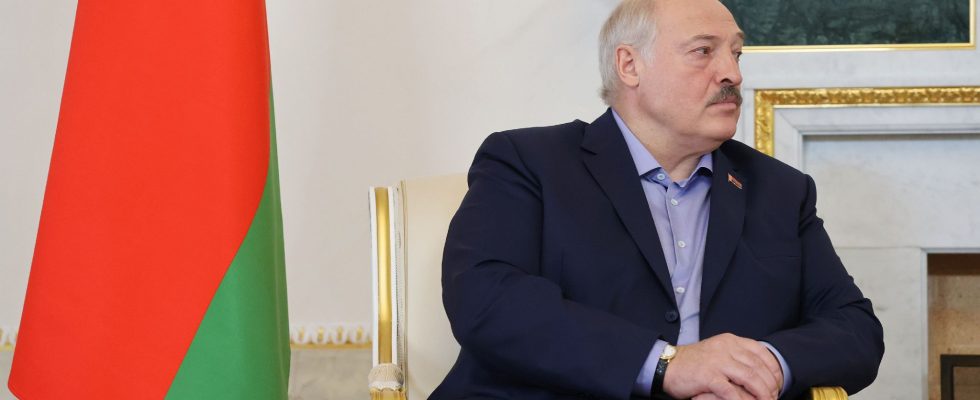Published last week, the decree cast a chill among the thousands of political exiles in Belarus. Especially those in Lithuania, the neighboring country. Signed by Belarusian President Alexander Lukashenko, the text indicates that consulates abroad no longer issue passports.
To obtain their passport, or renew it, the applicant must now go to “a consular service attached to their last registered place of residence” in Belarus, indicates the decree. As recalled The world, this decree sets out other restrictions: owners of real estate or cars will now have to be physically present on national soil to sell them, or produce a power of attorney signed in the country. Belarusians living abroad could until now renew their passport at a Belarusian consulate in the country in which they reside.
Refugee in Lithuania, the leader of the opposition in exile, Svetlana Tikhanovskaïa, called on her fellow citizens living abroad to “not panic” and not to return to Belarus if they risk being persecuted there. “No document in the world is worth human freedom,” she said. Several people who had decided in the spring of 2023 to return to their homes in Belarus were arrested at the border and then incarcerated.
“Retaliations” against human rights activists and defenders
The international community was outraged by this measure. The UN High Commissioner for Human Rights denounced, Friday, September 8, the decision of the Alexander Lukashenko regime. This decree “risks violating the rights of thousands of Belarusians in exile, including their freedom of movement,” he reacted on the social network X (formerly Twitter). “No one should feel forced to return and risk persecution. We call for a review of the decree in accordance with international standards,” the Office added.
The decree “aims to retaliate against human rights activists and defenders who have been forced to flee the country since the fraudulent 2020 presidential election,” Dave Elseroad of the Human Rights House foundation also said on Friday. in Geneva. “Those who are forced to return to Belarus for whatever reason are at high risk of being arrested and placed in arbitrary detention,” he told AFP.
“It’s dramatic. Exiles who are forced to return to their country risk being arrested and tortured. Their rights are clearly not guaranteed, also deplores near The cross Anaïs Marin, UN special rapporteur for Belarus. This decree actually aims to punish people who left the country for political reasons.”
Lithuania’s gesture towards the exiles
In response to this announcement, Lithuania announced on Monday September 11 that it would issue temporary identity documents to the numerous Belarusian exiles on its territory. The document promised by Lithuania, a member of the European Union, is a foreign citizen’s passport reserved for people fleeing an authoritarian regime and who do not have a way to renew their papers, the Interior Ministry said.
“The foreigner’s passport has been in force for many years, its duration is currently limited to one year,” Deputy Interior Minister Arnoldas Abramavicius told AFP. The ministry says it is considering extending this validity to three years. “We intend to present a proposal to Parliament,” added Arnoldas Abramavicius. According to the ministry, around 60,000 Belarusian citizens currently reside in Lithuania.
Tens of thousands of Belarusians have fled their country since the regime of Alexander Lukashenko, an ally of Vladimir Putin’s Russia, launched a vast crackdown on all dissent after large opposition demonstrations.
Ultimately, hundreds of thousands of Belarusians could find themselves illegally all over the world due to the decree. To remedy this, the Belarusian government in exile of Svetlana Tikhanovskaïa is defending with the European authorities the creation of a special passport which would be distributed to all exiles likely, directly or indirectly, to be pursued by the power in Minsk.
